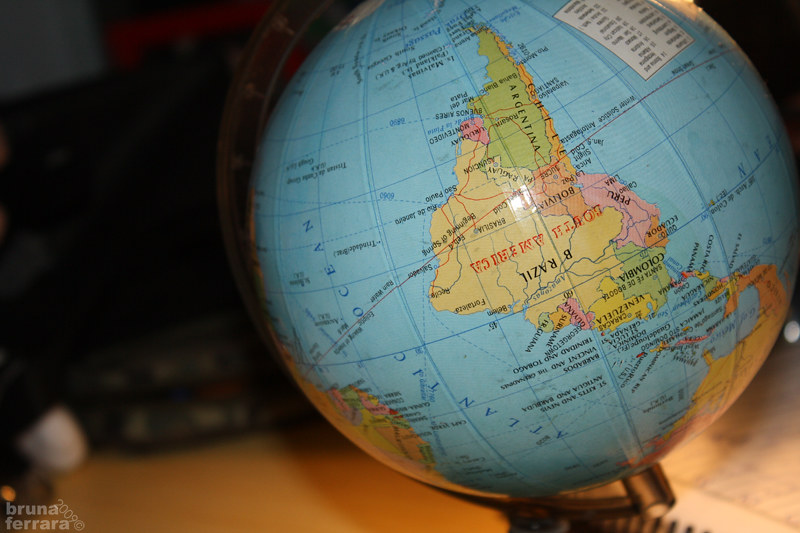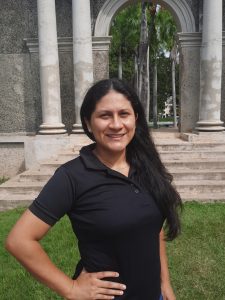Dear reader, thank you for taking the time to visit our blog, which we prepared considering the diversity of perspectives from our readers. Our objective is to publish information that is useful to create and support a diverse and inclusive campus. This blog covers topics related to international students and how they integrate or face difficulties in getting accustomed to the U.S. university systems. They may experience changes in their cultural and social environments, among others. A culture that can allow them to ease the transition to this new environment may result in helping international students’ academic and social performance during the acclimatization process.

As one of the objectives of this blog is to discuss and present ideas towards a diverse and inclusive campus, here are some recommended activities or initiatives to consider:
- Check on international student’s emotional health.
- Being outside the home country for a long time can make them feel anxious or depressed.
- Create communities for international students on campus where they can find peers/friends from the same country.
- Promote interchange of culture, diversity between international students.
- Show the importance to build global networking.
- Implement physical activities for the students (swimming lessons, dancing, etc).
- Suggest courses based on dialogue and Implement/design classrooms or courses for internationals
- Create awareness of cultural variation in the classroom to improve student learning.
- Facilitate academic counseling appointments focused on international students.
- Give international students the opportunity to engage in dialogue, discussion, and interaction with peers in the classroom.
Chris R. Glass, the co-author of the book, International Student Engagement: Strategies for Creating Inclusive, Connected, and Purposeful Campus Environments, mentioned in his article: International Students’ Sense of Belonging—Locality, Relationships, and Power in 2018, that it is important to consider that international students may experience multi-local belonging. Once they leave their country, they already have all the identity from their home country and start experimenting with adaptation in their new place. Creating an environment of awareness of this multi-local belonging among international students, and highlighting the benefits for a fast adaptation, may be beneficial by allowing them to explore and redefine their own identity and incorporate into it new experiences.
Continuing with this article, another aspect for international students during their adaptation is their relationships. Leadership programs and organizations inside and outside the campus help them to grow a supportive community, increasing their sense of belonging. International students start building a network that may last long after they leave the campus and return to their home countries, giving them confidence in the ability to connect with others and create diverse relationships.
According to Glass, participation in the campus community and having the power of making decisions for their interests can make them feel that their voices will be heard. For example, to reduce the feeling of isolation due to their nationality or ethnicity, leaders from the campus can help to create a culture where international students can be included in the campus governance and process where decisions are made. This will facilitate their political involvement as “citizens of the campus” and advocate for their own interests.
Finally, I would like to leave this phrase that Chris R. Glass referenced from the Association of Governing Boards of Universities and Colleges (2016), which I believe can help us to reflect on the true meaning of diversity and inclusion:
“Diversity without inclusion is only a metric. Inclusion recognizes and embraces the need for all members of the institutional community to have a sense of ownership in the institution and a place of belonging.”

Yareni Lara-Rodriguez holds a manufacturing engineer degree from Mexico. She earned a master’s degree in mechanical engineering in the Department of Mechanical Engineering at the University of Puerto Rico at Mayaguez (UPRM), where currently she is a doctoral student. Yareni is a member of the Society of Women Engineers (SWE) where serves both as Graduate Committee Lead at UPRM section and as a Community Outreach Lead at the Latinos affinity group for FY22. As a graduate member of the Society of Hispanic Professionals Engineers (SHPE) she advocates for undergraduates towards a successful graduate school incorporation, reason why she serves as a Grad Chair for SHPE-UPRM FY22. Yareni’s commitment for an inclusive and diverse community in the campus led her to serve as Spokesperson in the International University Community at UPRM and, as a Content Creator in the Diversity and Inclusion Team for the SWE Graduate Community. Currently, she serves as the administrator of this website.


